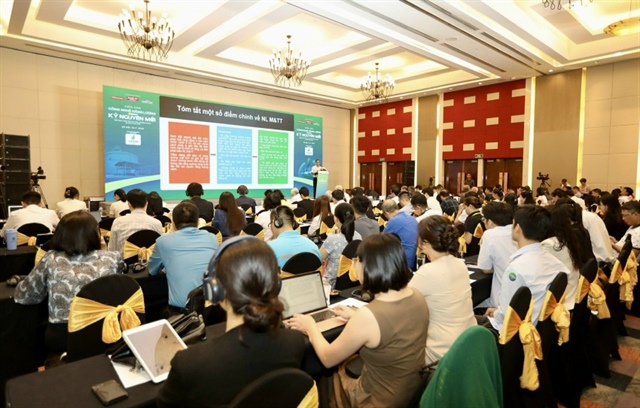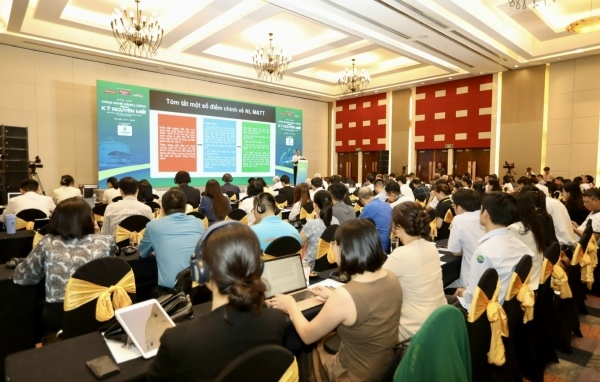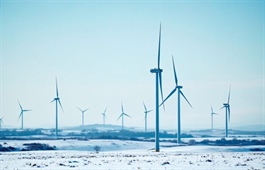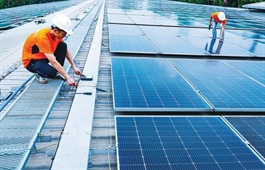Technology at the core of Vietnam’s energy transition
Technology at the core of Vietnam’s energy transition
Vietnam is accelerating its energy transition, seeking to combine rapid renewable energy expansion with advanced storage and grid technologies to ensure stability, competitiveness, and long-term sustainability.
|
Speaking at the Energy Technology in the New Era Forum in Hanoi, Tran Khanh Viet Dung, country director of HDF Energy Vietnam, highlighted that while renewable energy (RE) is a cornerstone of the transition, it remains inherently unstable without effective storage solutions.
HDF Energy, a France-based pioneer in hydrogen-to-power technology, has delivered some of Europe’s largest hydrogen energy projects and developed continuous renewable supply systems for remote, off-grid communities in France, Southeast Asia, the Philippines, Australia, and Japan.
According to Dung, Vietnam is only at the starting line in hydrogen adoption. Still, it has already made decisive progress, particularly in bringing clean, reliable electricity to non-grid-connected islands at half the cost of diesel generation. This, he said, offers clear socioeconomic benefits and reduces carbon dependency in isolated areas.
Beyond electricity, HDF is working with the former Ministry of Transport, now under the Ministry of Construction, to explore hydrogen’s role in decarbonising transport. However, Dung stressed that technology alone is not enough, the energy transition requires synchronised, actionable policy from central to local levels, alongside investment incentives and financial partnerships.
"Hydrogen is still new globally, not just in Vietnam," he noted. "National strategies are in place, but we need detailed implementation guidelines so that investors, developers, and financial institutions can move quickly and turn policy into real projects that accelerate the transition and deliver net-zero outcomes."
For Chandan Singh, general director of Hitachi Energy Vietnam, the country’s energy transition is also a technological challenge. Since 2018, Vietnam has rapidly deployed its RE capacity, but grid congestion and regional imbalances have emerged, with the north-facing shortages while the south often has excess generation.
Singh said Hitachi Energy, present in Vietnam since 1993 with a predominantly local workforce, is working closely with Vietnam Electricity to integrate advanced grid management, large-scale storage, and flexible electricity market mechanisms. He stressed that the transition’s success will hinge on deploying next-generation storage technologies, including hydrogen, within the tight timelines of Power Development Plan VIII.
Reflecting on recent trends, Singh observed that in the past six months there has been a surge in projects, especially in high-demand sectors such as data centres, where both energy efficiency and cybersecurity are critical. “The momentum is here,” he said. “The question is how fast we can apply technological breakthroughs to meet the country’s targets.”
From the legislative perspective, Dr Ta Dinh Thi, Vice Chairman of the National Assembly’s Committee on Science, Technology and Environment, emphasised that Vietnam’s energy transition is no longer optional but inevitable. Electricity demand is projected to grow 8-10 per cent annually over the next decade, while domestic fossil resources are being depleted, forcing greater reliance on imports. Meanwhile, climate change is already costing the economy an estimated 3 per cent of GDP annually.
|
He underlined that applying advanced technologies, from smart grids to green hydrogen and carbon capture, is the only way to ensure energy security, economic growth, and environmental protection in the transition. Vietnam’s COP26 pledge to reach net zero by 2050 has been followed by strategic policy frameworks such as Politburo Resolution No. 55-NQ/TW and the updated Power Development Plan VIII, which aim to lift non-hydro renewables to 28-36 per cent of capacity by 2030 and 74-75 per cent by 2050.
He called for accelerating domestic renewable exploitation, developing future energy technologies, modernising the grid through AI and digitalisation, refining market mechanisms and green finance policies, and building an industrial ecosystem capable of localising energy technology.
- 17:01 29/07/2025





























